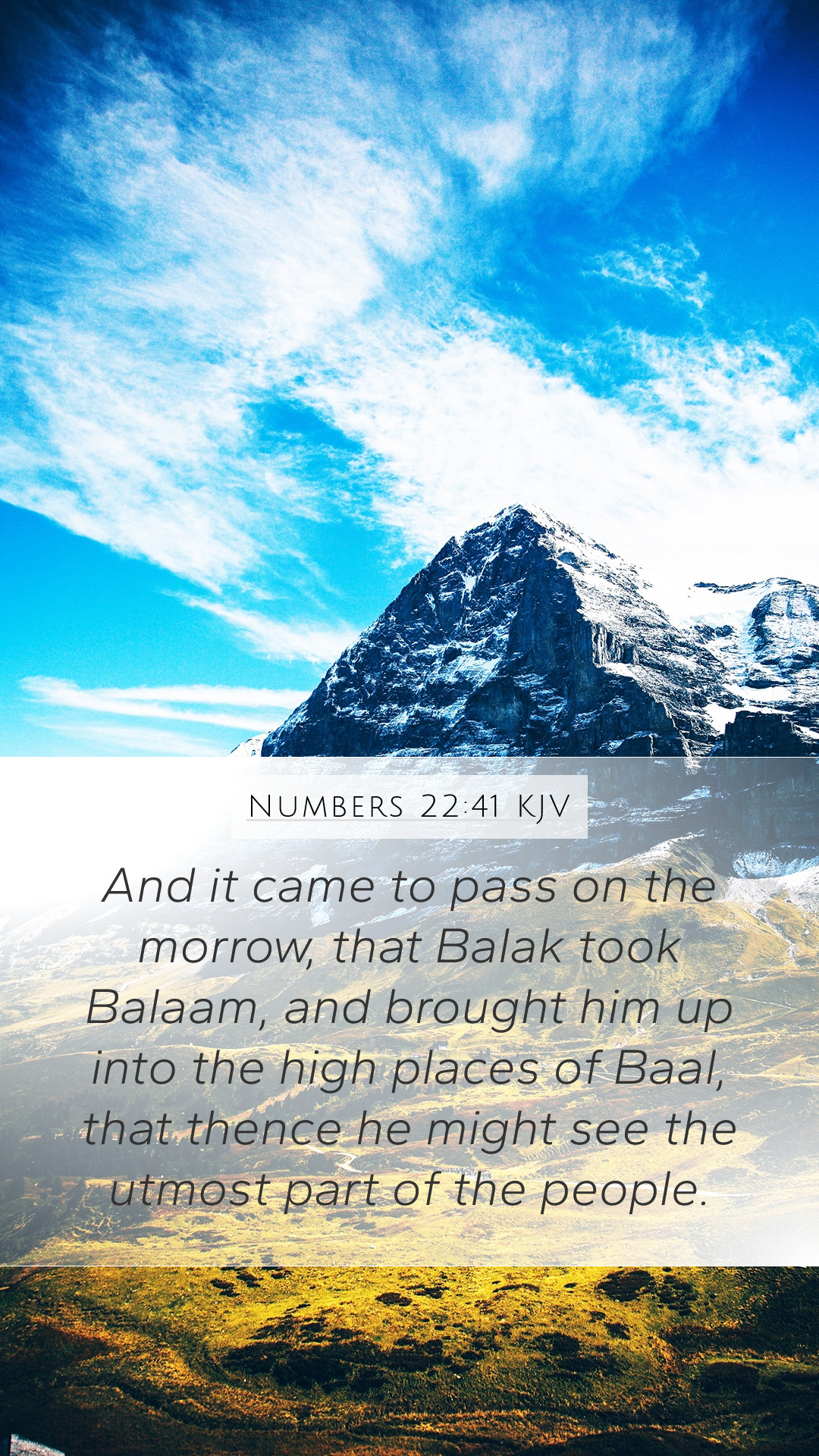Understanding Numbers 22:41: A Comprehensive Bible Verse Explanation
In the Book of Numbers, chapter 22, verse 41 captures a significant moment in the narrative surrounding Balaam, a prophet on a peculiar mission to curse the Israelites. The verse states:
"And it came to pass on the morrow, that Balak took Balaam, and brought him up into the high places of Baal, that thence he might see the utmost part of the people.”
This event marks a crucial turning point in the story, filled with layers of meaning and implications that resonate throughout Scripture. Below, we will explore various interpretations and insights from esteemed public domain commentaries to deepen our Bible verse understanding.
Contextual Overview
To grasp the meaning of Bible verses effectively, it is essential to consider the broader historical and literary context. Numbers 22 depicts the tension between the Israelites and the Moabite king Balak, who enlists Balaam’s help to curse Israel. This scenario highlights the struggle between divine will and human attempts to manipulate blessings and curses.
Commentary Insights
-
Matthew Henry’s Commentary:
Henry emphasizes the irony of Balak's actions. Despite his intentions to use Balaam for cursing Israel, the Lord had already established His covenant with His people, rendering any attempts to oppose them futile. This serves as a reminder of God's sovereignty and protection over His chosen ones.
-
Albert Barnes’ Notes on the Bible:
Barnes notes that Balaam's journey to the high places of Baal is emblematic of the pagan practices of the time, revealing Balak's reliance on idolatry rather than acknowledging the one true God. Balak believed that by sacrificing in high places, he could influence a favorable response from the deities.
-
Adam Clarke’s Commentary:
Clarke interprets the "high places" as a significant symbol in the ancient Near Eastern culture, where worship and sacrifices were often made on elevated sites. He reflects on the futility of Balak’s plan, as God’s purpose would not be thwarted by human scheming.
Spiritual and Theological Implications
This verse illustrates the persistent human tendency to rely on tangible means (like idolatrous high places) to manipulate divine favor. The application of this verse to daily life encourages believers to trust in God’s promises rather than resorting to worldly tactics or alliances to seek His approval.
Cross References for Further Study
- Numbers 23:8-20: Balaam’s prophecies and the unchanging will of God.
- Deuteronomy 23:3-6: Israel's relationship with Moab.
- 1 Peter 2:9: The idea of a chosen people and God’s protection over them.
Conclusion
Numbers 22:41 offers rich insights into the nature of divine sovereignty and the apparent futility of opposing God's plans. As we engage in Bible study and seek Bible verse explanations, let us remember that every verse tells a part of the overarching story of God's relationship with humanity.
In delving into the historical context of Bible verses like this, we uncover deeper truths that not only illuminate the Scripture itself but also provide valuable lessons applicable to our lives today.


